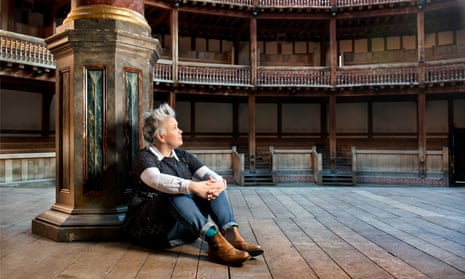There will be no getting away from Shakespeare this week, as the 400th anniversary of his death is celebrated with events all across the country. But of course you can never get away from him. Even those who have never seen a Shakespeare play will understand what is meant by a Romeo; frequently some public figure’s fall from grace is described as a tragedy of Shakespearean proportions. Shakespeare has permeated every aspect of life from the language we use on a daily basis to advertising campaigns from Levi’s to Red Bull.
A British Council survey published today suggests that Shakespeare is one of the UK’s most successful ever cultural exports: “400 years after his death, William Shakespeare has a positive impact on the UK economy and influence on the world,” trumpets the press release, pointing to the fact that around a third of those polled in 15 countries around the world had experienced Shakespeare. A similar number said that they liked him and understood the plays, and that he made them view the UK favourably and as a potential tourist destination. The government’s recent Culture White Paper suggests that the value of Shakespeare lies largely in his ability to underpin the “soft power” of the UK around the world, and encourage tourists.

What’s really fascinating about the British Council survey is that Shakespeare is actually more popular abroad than he is the UK. So why are the actual plays still seen as difficult in their home nation – something to be feared, or just not for “the likes of us” – when they have filtered into every nook and cranny of modern life? Perhaps it’s because of this way we attach value, cultural and otherwise, to Shakespeare, so he is thought of as the immortal pinnacle of British culture – and is therefore a turn-off to less hidebound audiences.
And in commandeering Shakespeare as part of our heritage industry, too often we have failed to dust off the cobwebs of 425 years of performance. The result is that Shakespeare is seen as irrelevant to many people living in the UK.
That’s absurd, because in Shakespeare’s own time Queen Elizabeth and her court enjoyed exactly the same plays as the groundlings at the Globe. There were none of the distinctions we now make between high and low culture – between what we really value and believe will endure, and what is dismissed as mere entertainment. But Shakespeare’s plays were once entertainment. If a play was not popular, it would not be regularly restaged. Nobody thought that popularity disqualified them from being valuable.
One of the brilliant things about Anne Washburn’s Mr Burns, seen at the Almeida in 2014, was the way it asked what might really endure in a post-apocalyptic society: Homer or Homer Simpson? It reminded that both might have lasting value, because what is valued is what is handed on through the generations.

The 2012 Globe to Globe season proved that Shakespeare is indeed very popular all across the world and is constantly being restaged, but often without the embalming over-reverence that is so often attached to the plays in this country, particularly to Shakespeare’s language and poetry – as if somehow Shakespeare has to be protected with a “don’t touch” sign. The fuss around Emma Rice’s plans for the Globe show that some see Shakespeare’s plays as fragile little things, easily broken.
But they are much more robust than that, as brilliant productions such as Ivo van Hove’s The Roman Tragedies or his current Kings of War, which opens at the Barbican later this week, prove in the way they play fast and loose with the texts. Van Hove mashes up the plays in a way that few UK directors would dare, and understands how to use the drama of the past to illuminate the present.
Will there be celebrations in another 400 years? Only if the plays are allowed to breathe and be reinvented for new generations. There are many people in the UK who are completely uninterested in the current anniversary, thanks to Shakespeare being staged in a way that doesn’t speak to their lives. The playwright, whose work our government mothballs as part of our heritage industry, and reveres not for the continued vibrancy of his plays but for what he might do for tourism or trade agreements, is a playwright in danger of being killed stone dead.

